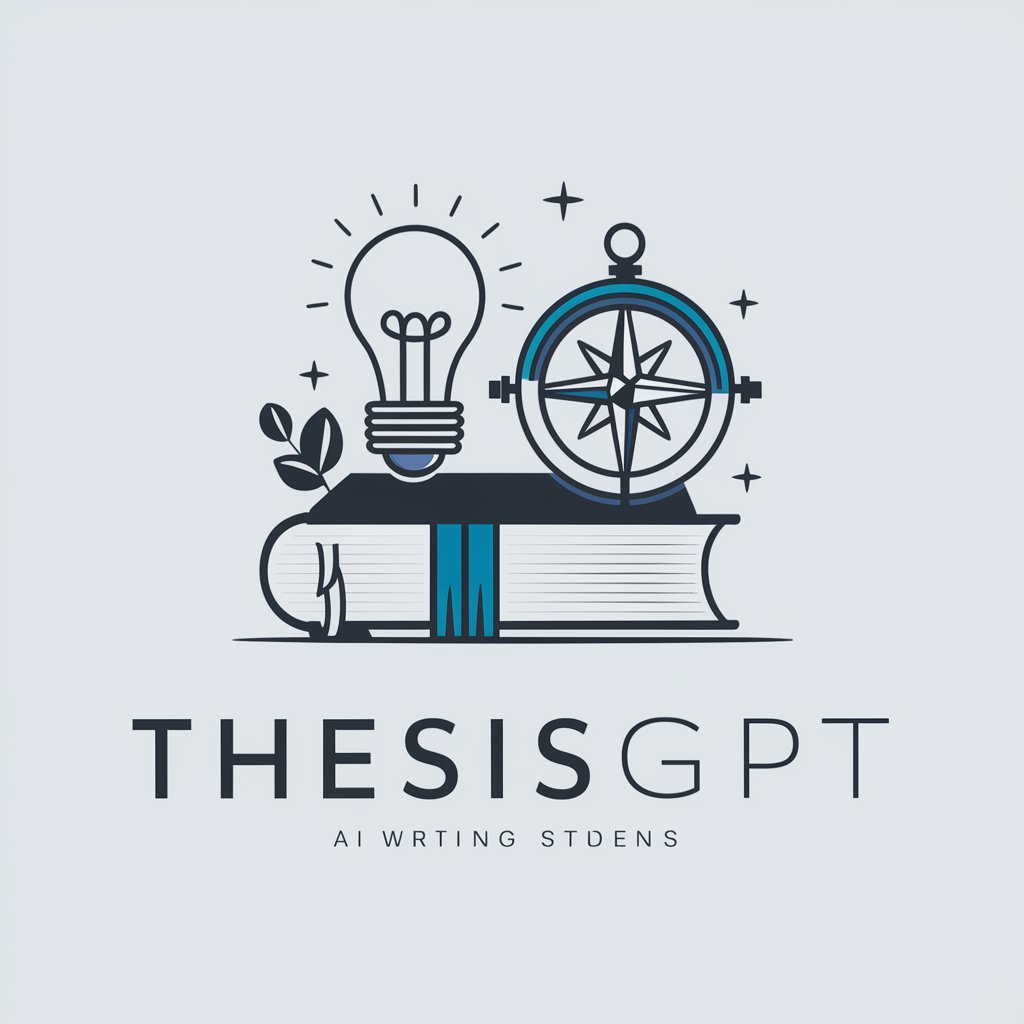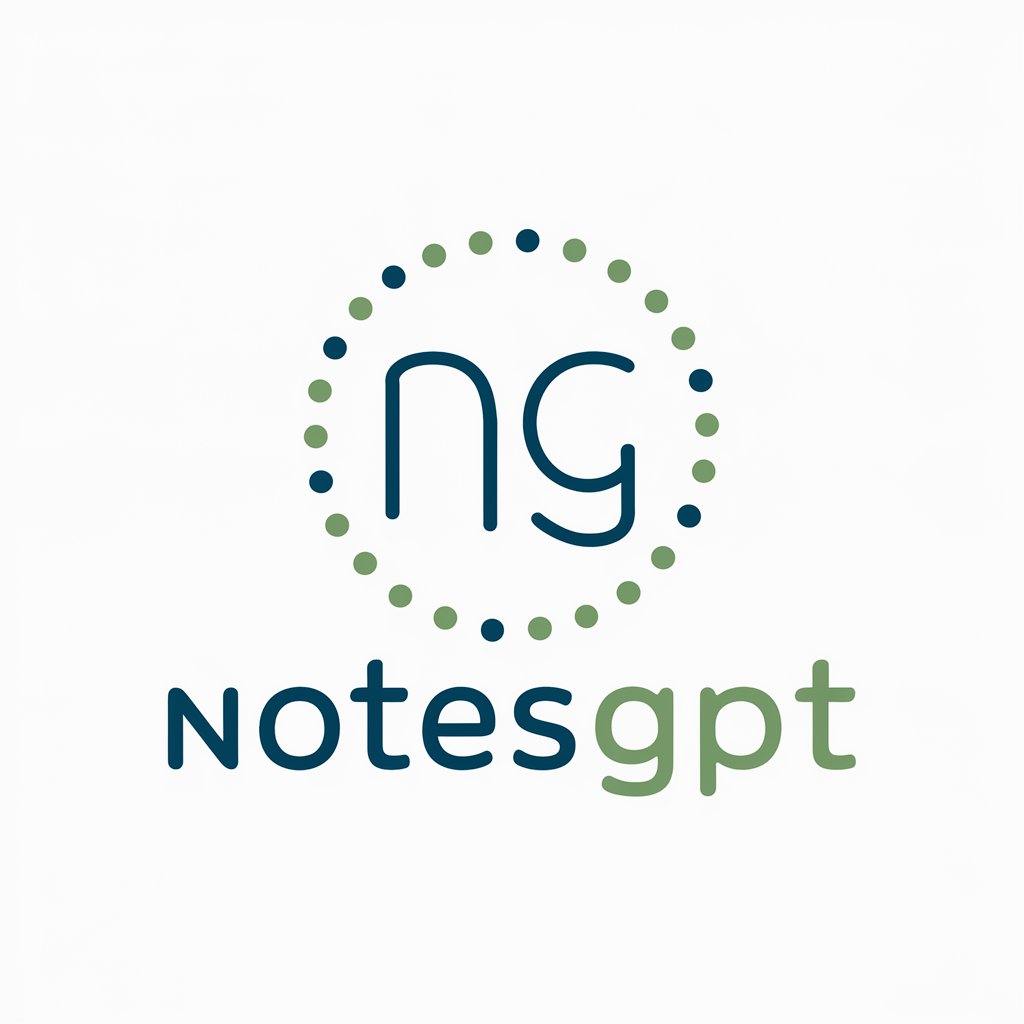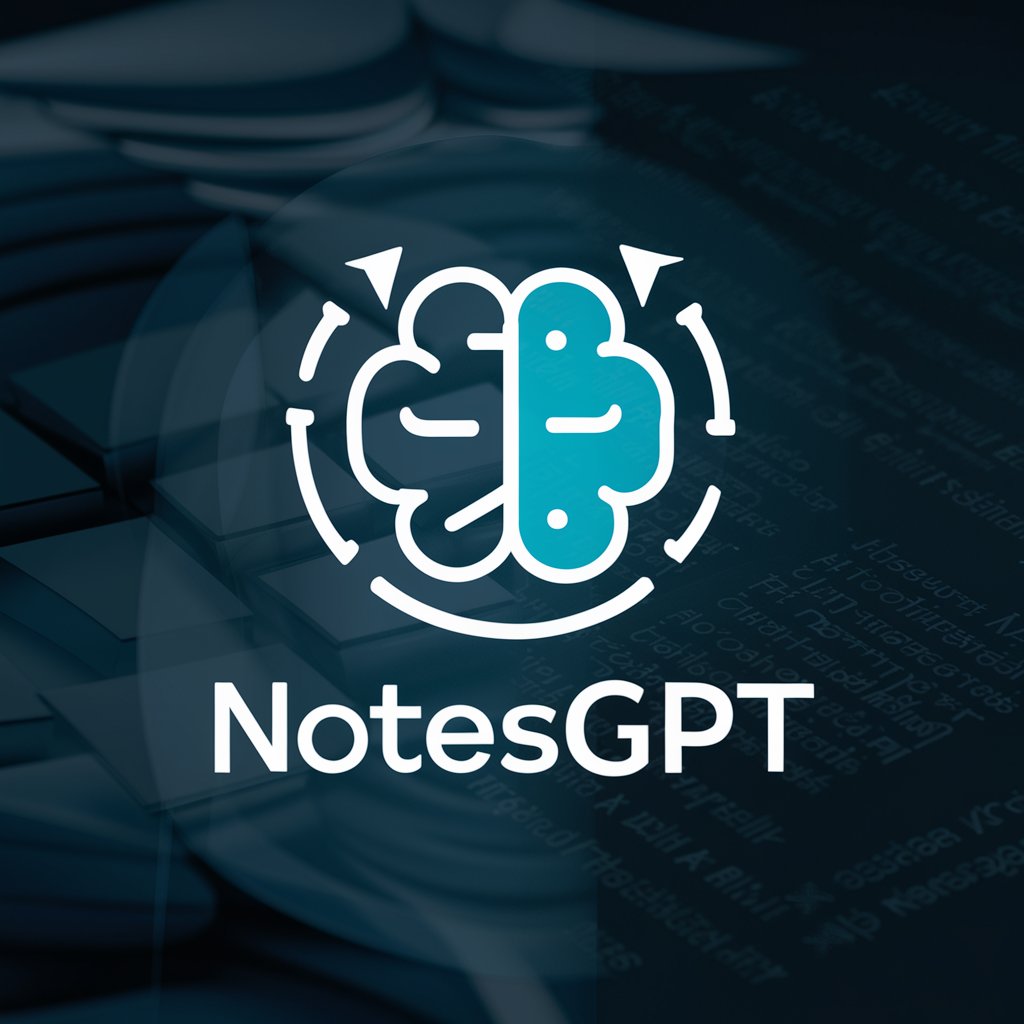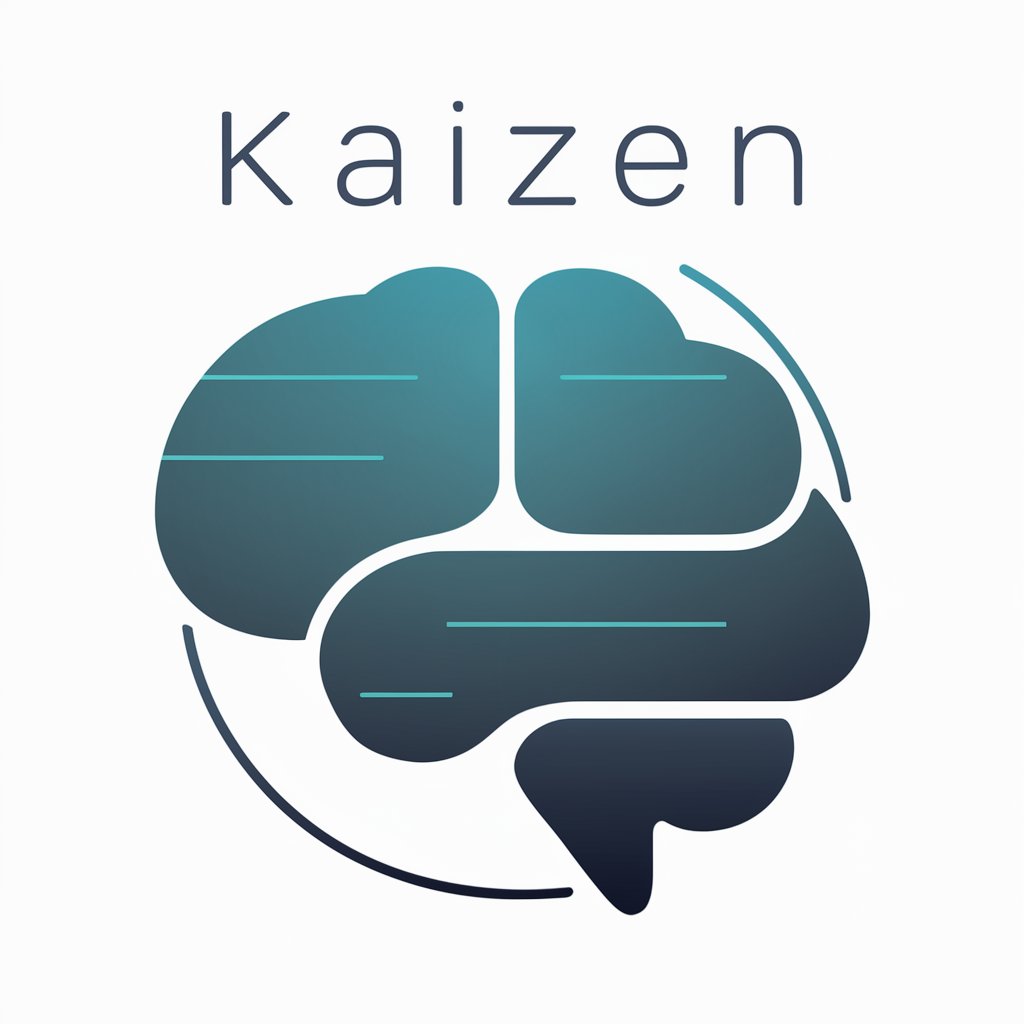ThesisGPT - Thesis Writing Aid

Welcome to ThesisGPT, your guide for mastering thesis writing!
Elevate Your Thesis with AI
What are the key components of a strong thesis statement?
How can I structure the literature review for my thesis?
What strategies can I use to enhance the clarity of my arguments?
What are effective methods for conducting a comprehensive literature review?
Get Embed Code
Overview of ThesisGPT
ThesisGPT is an advanced tool designed to support students in various stages of thesis writing. It is integrated into the Thesis Navigator website and serves as an academic assistant. Its primary aim is to enhance the thesis-writing process by helping students formulate strong thesis statements, structure coherent arguments, and conduct detailed literature reviews. ThesisGPT emphasizes academic integrity and critical thinking by offering guidance rather than directly writing any part of the thesis. It uses data from scite.ai to provide insights into the citation contexts and the impact of research sources, aiding students in evaluating the relevance and reliability of references for their thesis. Powered by ChatGPT-4o。

Core Functions of ThesisGPT
Formulating Thesis Statements
Example
A student might struggle to define a clear, impactful thesis statement for their research on renewable energy technologies. ThesisGPT can guide them through various questions and prompts to refine their focus, leading to a thesis statement like, 'This thesis argues that the integration of solar and wind energy systems in urban areas is crucial for sustainable city development.'
Scenario
The student inputs their broad topic ideas and receives targeted questions that help narrow down the thesis focus, considering factors such as feasibility, research gaps, and personal interest.
Structuring Arguments
Example
For a thesis on the psychological impacts of social media on teenagers, ThesisGPT can assist in organizing the argument structure. It can suggest a framework that begins with a review of existing theories, followed by recent data on social media usage patterns, and then linking these to observed psychological effects in adolescents.
Scenario
A student outlines their initial research findings and hypothesis. ThesisGPT provides feedback on logical flow and potential counterarguments, ensuring the student builds a strong, cohesive argument.
Conducting Literature Reviews
Example
When a student is investigating the effects of climate change on marine biodiversity, ThesisGPT can help identify key sources and studies through scite.ai. It provides context on how these sources have been cited and their academic impact, guiding the student to use highly relevant and cited studies in their review.
Scenario
The student begins with a broad search for articles. ThesisGPT suggests refining strategies and critical evaluation techniques for sources, focusing on citation contexts to understand the influence and criticism of each work.
Target Users of ThesisGPT
Graduate and Undergraduate Students
Students at both graduate and undergraduate levels who are engaged in thesis or dissertation writing are ideal users. ThesisGPT aids them in navigating complex research topics, refining research questions, and ensuring their arguments are well-structured and supported by credible sources. This tool is particularly beneficial for those new to academic research or those dealing with highly technical subjects.
Academic Researchers
Early-career researchers or those in academic positions who require assistance in framing and structuring long-form research papers can benefit from ThesisGPT. The tool provides assistance in developing research frameworks, enhancing literature reviews, and maintaining academic integrity in writing, which are crucial for publishing in scholarly journals.

How to Use ThesisGPT
Initial Access
Visit yeschat.ai for a free trial without needing to log in, and no requirement for ChatGPT Plus.
Define Objectives
Identify and clearly define your thesis topic and objectives. Consider what aspects of your research require support, such as crafting a thesis statement, structuring your arguments, or conducting literature reviews.
Engage with Tool
Use ThesisGPT to ask specific questions related to your thesis. Input can range from asking for feedback on your thesis statement to seeking assistance with citation styles or understanding complex theoretical concepts.
Review Suggestions
Evaluate the suggestions and resources provided by ThesisGPT. Utilize the integrated scite.ai data for insights on citation contexts and research impact, enhancing the depth of your literature review.
Refine and Iterate
Continuously refine your queries based on the feedback from ThesisGPT. Employ critical thinking to expand on the tool’s contributions, ensuring your final thesis is robust and academically sound.
Try other advanced and practical GPTs
Fiche Produits Ecommerce en Français
Enhance Product Visibility with AI

Storybrand By Donald Miller. (ANY LANGUAGE)
Empower Your Brand with AI-driven Storytelling

DevOps GPT
Elevating DevOps with AI-driven insights

My SvelteKit2 GPT
Elevate Your Code with AI-Powered Development Guidance

NoteGPT
Transform Text into Structured Notes

NotesGPT
Revolutionize Note-Taking with AI

MapoScribe GPT
AI-powered descriptions for top-down scenes.

kaiZEN
Empower Decisions with AI Insights

Flutter Expert
Elevate Your Code with AI-Powered Flutter Expertise

Flutter Expert
Empowering Flutter development with AI

Jira GPT
Streamline JIRA with AI

JIRA story writer
Craft JIRA stories effortlessly with AI

Frequently Asked Questions about ThesisGPT
What exactly does ThesisGPT do?
ThesisGPT assists students in thesis writing by helping formulate thesis statements, structuring arguments, and conducting literature reviews. It provides feedback, suggests academic resources, and supports idea development while promoting independent research skills.
Can ThesisGPT write parts of my thesis for me?
No, ThesisGPT is designed to guide and support the thesis writing process without directly writing any parts of your thesis. It encourages the development of your own ideas and ensures academic integrity in your work.
How can I get the most out of ThesisGPT?
Maximize your use of ThesisGPT by clearly articulating your research questions, actively engaging with the feedback provided, and using the insights from citation contexts and research impact to enhance your literature review.
Does ThesisGPT help with citations?
Yes, ThesisGPT can assist with understanding different citation styles and formats. It also provides insights into the impact of research through data integration from scite.ai, helping to evaluate the reliability and relevance of sources.
Is ThesisGPT suitable for all academic disciplines?
ThesisGPT is versatile and can be adapted to various academic disciplines. It helps in articulating specific disciplinary methodologies, theories, and concepts, making it a useful tool across diverse academic fields.
